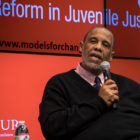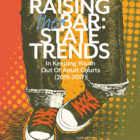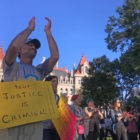
Older Justice-involved Youth Have Unique Needs When Released, Report Says
|
A new report from a coalition of juvenile justice organizations is intended to help communities better serve people 18 to 24 who are involved in the juvenile justice system and in danger of becoming homeless.






